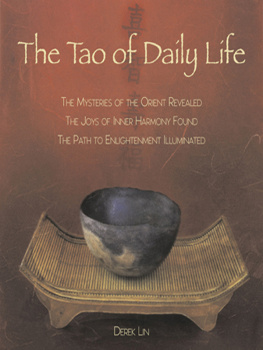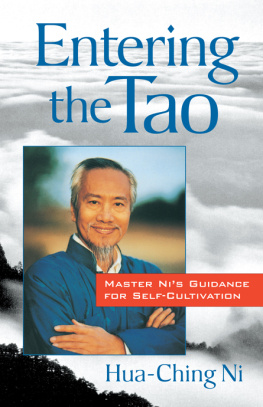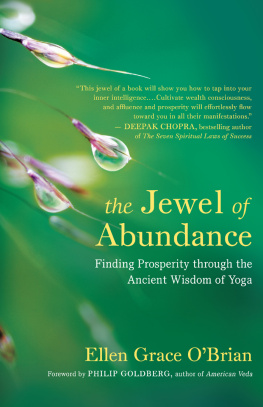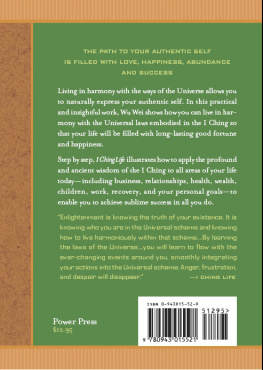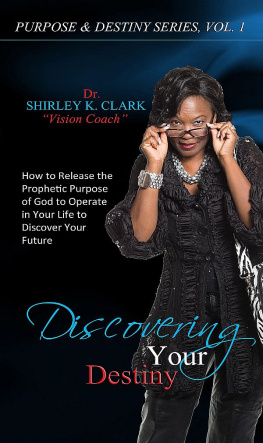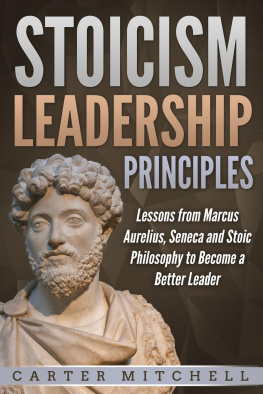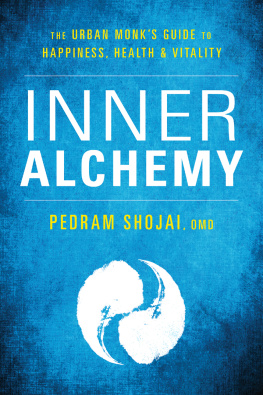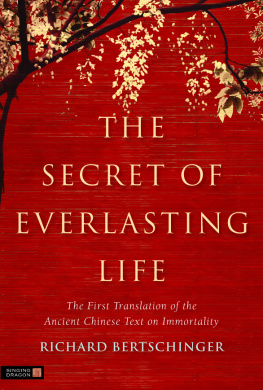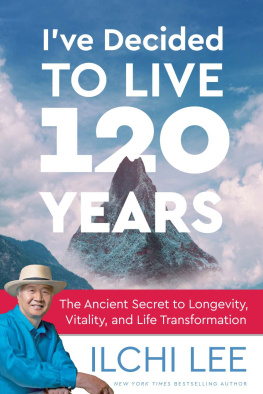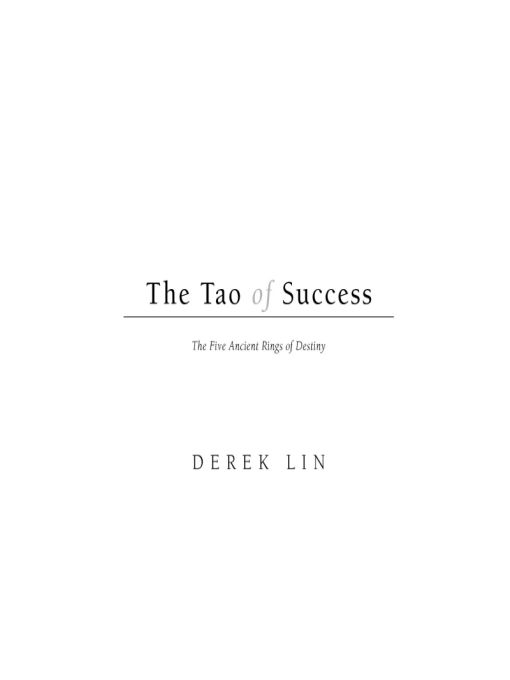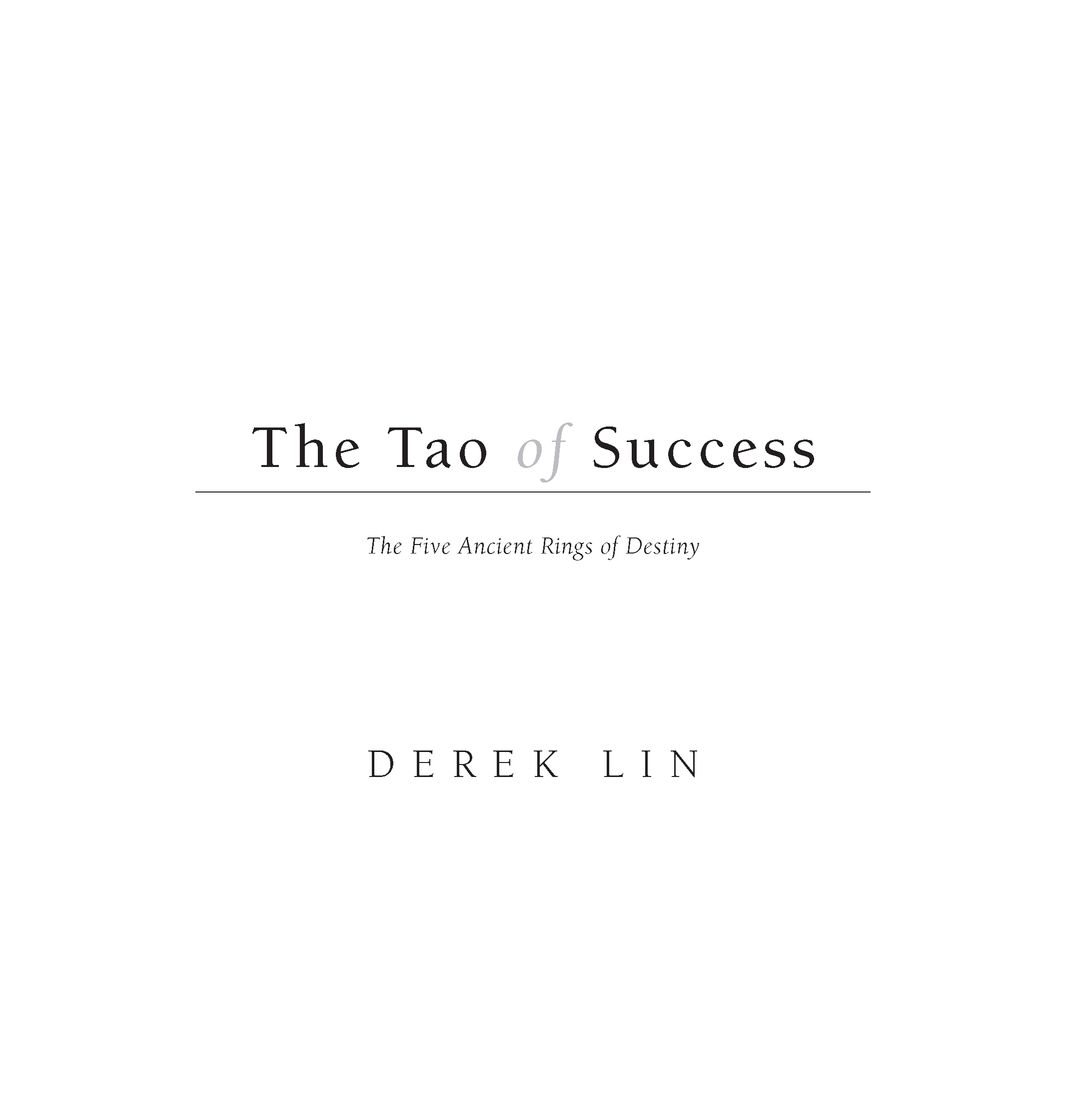Table of Contents
JEREMY P. TARCHER/PENGUIN
a member of Penguin Group (USA) Inc.
New York
This book is dedicated to the memory of Robert Lin:
brother, best friend, and Tao cultivator extraordinaire.
Introduction
Life transformation. It is special and magical when it happens. Suddenly, you realize you have made it through a certain transition. Nothing has changed, and yet everything is different, because you are no longer the same person inside.
It is no less special and magical when you watch someone else go through the process. Physically, that person remains the same, but spiritually it is as if a butterfly has emerged from its chrysalis. It sees the world through new eyes; it spreads its new wings and takes flight. It is an honor to bear witness to this, because a spiritual rebirth is as miraculous as a physical birth.
Life transformation is, in fact, the primary purpose of Tao cultivation. The ancients studied the Taothe way of existencenot to develop philosophical topics for discussion, but to understand how we progress from one level of spirituality to the next. In their terminology, following the Tao correctly means successfully transcending to the next level.
They accumulated their knowledge about the Tao gradually, through centuries of careful observation. They learned from nature and from individuals who were able to attain outstanding success in a natural and effortless manner. In time, they perfected this Tao as a reliable, time-tested way to catalyze lasting change in life.
Like the ancients, we also wish to improve ourselves. However, instead of putting proven methods to work, we often follow trends. We listen to self-improvement audio books, tune in to motivational programs, and flock to the latest bestsellers.
This yields mixed results. Some people are able to create a genuine change for the better. They have followed the Tao correctly, even if they call it by a different name. Others are not so fortunate. They may enjoy success, only to see it fade away. They may change themselves for a while, only to slip back to their old ways. These are the ones who have not stayed on the Tao.
The way of the ancient sages is more reliable. Their comprehensive understanding of human nature gives us a way to not only keep ourselves on the right path, but also warns us when we stray from it. All we have to do is take this Tao of success and apply it to the here and now. We need to, in short, practice the Tao of Modern Life.
Success and the Tao
There are those who feel strongly that the Tao is diametrically opposed to the quest for lifelong success. They may have studied Eastern philosophy previously, and some of them may say, There is no success or failure in the Tao, or Ultimately, success has no meaning, or There is nothing to do in seeking success, because you are already successful.
These expressions all seem quite profound, and yet if you delve into Chinese culture, you will discover that there are no common sayings that match them. The Chinese people are very much success-oriented. They will gladly discuss cheng gong zhi dao (the Tao of success) with you, but if you try to convince them that it is ultimately meaningless, you will only puzzle them. They may point to the parent working hard to build a family, or the kung fu master practicing rigorously for years to perfect a skill. These honorable individuals certainly do not believe they are already successful, or that they have nothing to do.
How can this be? How can Chinese people themselves not understand the basic concept of wu wei, the essence of nonaction in the Tao? Havent Taoist thoughts permeated every aspect of the culture for centuries?
The simple answer is that the Tao that is usually presented in the West is not the same as the ubiquitous Tao of the East. The version we see has been distorted by the language barrier. Wu wei does not mean nonaction, and some of the teachings we end up with are more like the fortune cookie or chop sueywidely assumed to be Chinese but are in fact invented in the West.
The truth is that there are deeper teachings of the Tao that go beyond the meaningless nature of everything. Most people never get exposed to them, so some will automatically assume that the lack of meaning must be the highest form of wisdom. In actuality, it is only the entry point.
The Tao tradition has a story that illustrates this:
Once upon a time in ancient China, there was a young man who was so awestruck to learn about the emptiness of existence, he could not stop talking about it. He told anyone who would listen: When you get to the bottom of it all, you realize nothing has any intrinsic meaning.
One day, a sage heard him discussing this topic with his friends. Everything is meaningless, he insisted. He challenged them to refute his statement, but his reasoning seemed so strong that no one could do it.
The sage joined them and asked the young man: Why do you suppose that is? Why is everything meaningless?
The young man said: Why ask why? Reason is also meaningless. Perhaps there is no reason at all.
There is always a reason, the sage said. Everything is meaningless because that is exactly how it should be. It has to be that way because its void is what frees you to create your own meaning. The emptiness of a vessel is what gives it usefulness. Existence is a blank slate that invites your creative contribution.
It was as if a light came on in a dark room. Everyone gained a piece of enlightenment that day. The young man also became aware that he had a lot more to learn. His path on the Tao was just beginning.
It is exactly the same with success. What you have here is an open invitation to create your own meaning and contribute your creativity. Make use of the emptiness and fill it with your unique, personal definition of the good life. Your path on the Tao of success is just beginning.
The Training of the Tao
After the publication of The Tao of Daily Life, I had the privilege of meeting many people to speak with them about the transformational power of the Tao. In one such conversation, a reader raised an interesting question: Derek, your book is a good overview of the Tao, he said. It made me more interested in cultivation than ever. I would like to enroll in a program that is more structured and systematic so I can follow it step by step. Do you know of anything like that?
Im afraid not, I told him. The practice of the Tao is highly decentralized, so there is no universally recognized curriculum that one can study. There are no certification exams to pass and no degrees to be awarded. It is up to each of us to figure out the areas of life that require attention, and then focus on them in our cultivation efforts.
Let me ask my question in a different way, he persisted. Suppose I move to Asia and join an authentic tradition of the Tao to better myself. Will they tell me to work on whatever I feel like working on?
No. They will have you go through a spiritual learning process. This process will take you through various aspects of yourself in a specific sequence.... Okay, now I see what you are getting at.
He smiled. Yes! What are these aspects of me that I can cultivate? What is the specific sequence that I should go through in cultivating them?


